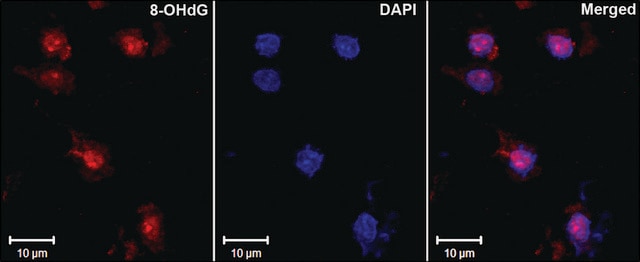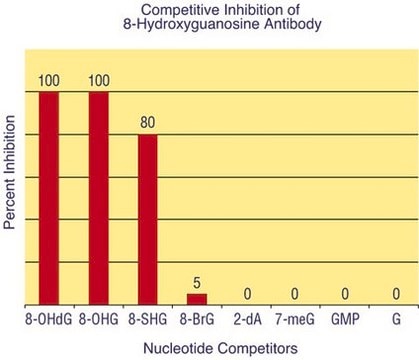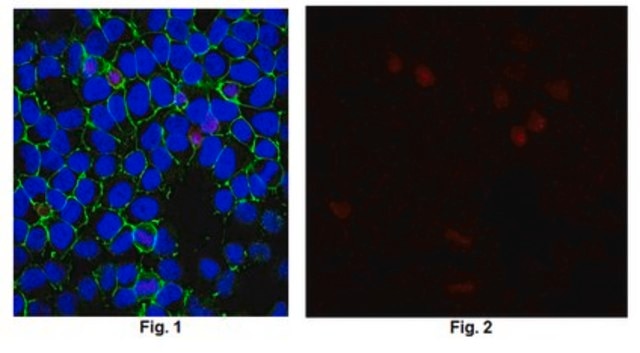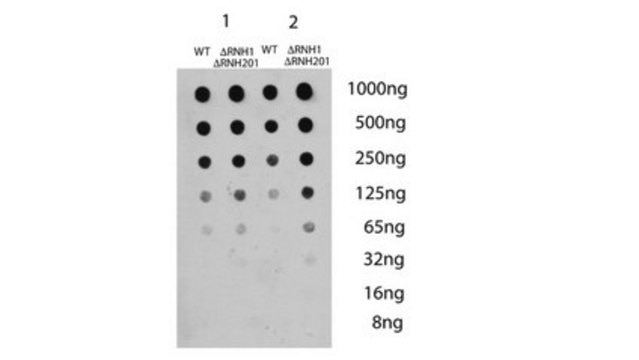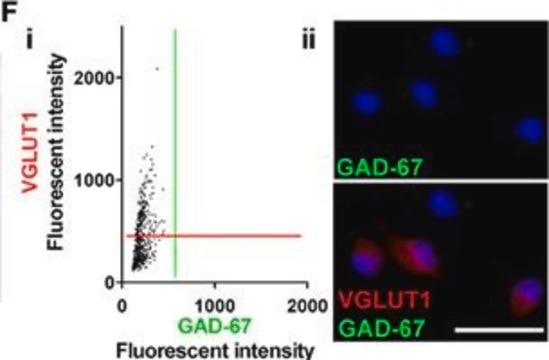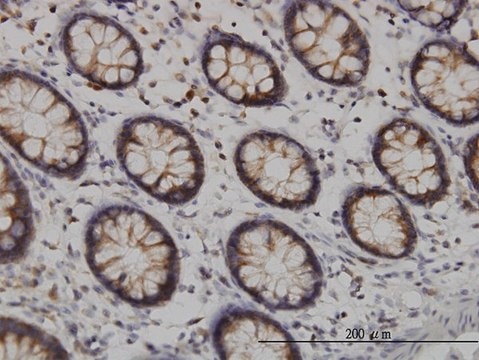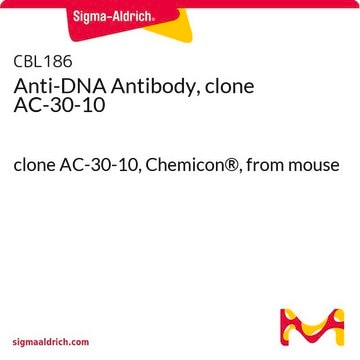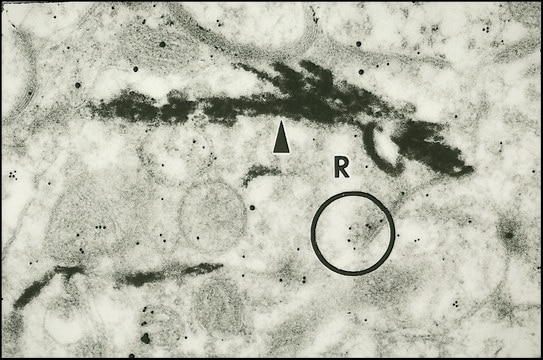MAB3560
Anti-8-Oxoguanine Antibody, clone 483.15
ascites fluid, clone 483.15, Chemicon®
Synonym(s):
8-oxoG
About This Item
Recommended Products
biological source
mouse
Quality Level
antibody form
ascites fluid
antibody product type
primary antibodies
clone
483.15, monoclonal
species reactivity
monkey, human, primate
species reactivity (predicted by homology)
mouse, rat
manufacturer/tradename
Chemicon®
technique(s)
ChIP: suitable
ELISA: suitable
immunocytochemistry: suitable
isotype
IgM
shipped in
dry ice
target post-translational modification
unmodified
Gene Information
human ... OGG1(4968)
General description
Specificity
Immunogen
Application
On HeLa and Cos7 cells fixed with paraformaldehyde. 8-oxoguanine has been localized to the nucleus in nutrient-deprived cells.
ELISA:
Cell grown in slides were extracted twice for 30 sec with cold 560nM NaCl;0.1% (v/v) Triton X-100;0.02% (w/v) SDS;10mM phosphate buffer pH 7.4 and fixed with freshly prepared 4% PFA for 5-20 minutes at room temperature. {Conlon, KA et al (2000) J. Histotechnology 23(1):37-44}. Typical staining shows that nuclei from extracted cells have define periphery and areas of condensed chromatin. Clone 483.15 staining showed specific but faint nuclear fluorescence staining in cells incubated in supplemented DMEM, but in cells incubated in nutrient-free defined solt solution (NFDSS) {1.8mM calcium chloride, 110mM NaCl, 44mM sodium biocarbonate, pH 7.5} showed strong nuclear fluorescence staining that appeared punctate and gernerally distributed. Fluorescence staining disappears to background levels in cells incubated in nutrient medias even after initial NFDSS treatments {Conlon et al}.
A previous lot of this antibody was used in an ELISA assay.
Optimal working dilutions must be determined by end user.
Quality
Immunocytochemistry:
Confocal fluorescent analysis of NIH/3T3 cells using anti-8-oxoguanine mouse monoclonal antibody.
Physical form
Storage and Stability
Handling Recommendations: Upon receipt, and prior to removing the cap, centrifuge the vial and gently mix the solution. Aliquot into microcentrifuge tubes and store at -20°C. Avoid repeated freeze/thaw cycles, which may damage IgM and affect product performance.
Analysis Note
Nutrient starved HeLa or Cos7 cells
Other Notes
Legal Information
Not finding the right product?
Try our Product Selector Tool.
wgk_germany
nwg
flash_point_f
Not applicable
flash_point_c
Not applicable
Certificates of Analysis (COA)
Search for Certificates of Analysis (COA) by entering the products Lot/Batch Number. Lot and Batch Numbers can be found on a product’s label following the words ‘Lot’ or ‘Batch’.
Already Own This Product?
Find documentation for the products that you have recently purchased in the Document Library.
Our team of scientists has experience in all areas of research including Life Science, Material Science, Chemical Synthesis, Chromatography, Analytical and many others.
Contact Technical Service